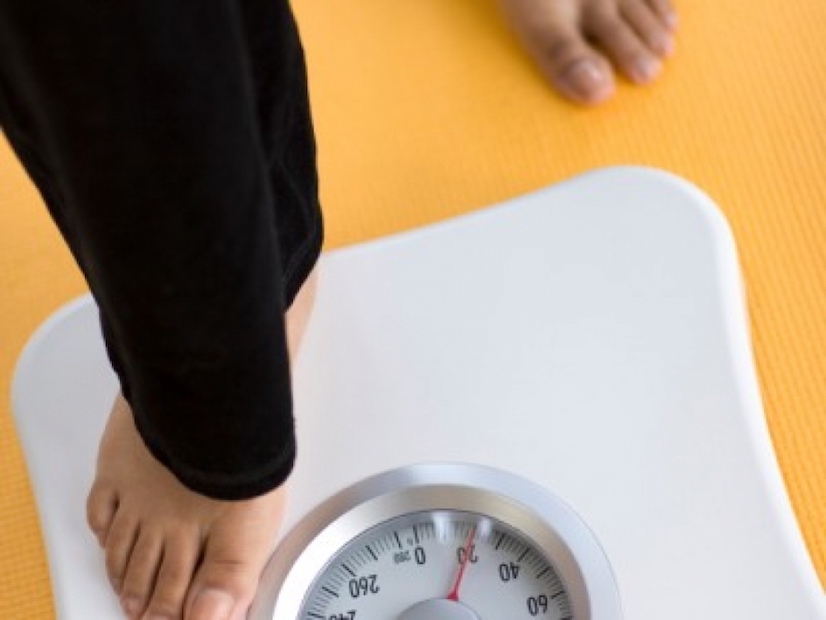“How many meals a day should I eat to lose weight?”
This is by far the most common question asked by dieters and weight watchers yet many just won’t accept the all too simple answer—It doesn’t matter.
Everyone has different preferences, schedules, and lifestyles. While this truth may go contrary to everything you’ve heard, find comfort and trust me when I say, again, that it really doesn’t matter.
Related Article: Don’t Be Afraid To Skip Breakfast
Over the years, I’ve learned something about myself. When it comes to eating in general, I prefer to eat large meals as opposed to constantly eating throughout the day.
So in 2012, I decided to fully embrace the idea of eating one large meal a day, which led to an unintentional 20-pound weight loss in less than two months. It was at this point that I came to realize that I had actually stumbled upon a real breakthrough in weight loss—The concept of intermittent fasting.
Simply stated, intermittent fasting is a method of periodically restricting calories.
While this definition has technical implications, intermittent fasting is a practice implemented by many folks on a regular basis, albeit oftentimes inadvertently.
Intermittent fasting is a method of periodically restricting calories.
How many times have you fasted for religious, cultural or even medical purposes? How often do you skip breakfast, lunch or dinner for the simple fact that you’re just too busy or preoccupied to eat?
Whether you know it or not, such episodes of food abstinence all constitute intermittent fasting. When done strategically, occasional intermittent fasting is actually quite a healthy practice, especially when you’re trying to manage your weight.
The true practice of intermittent fasting involves either an elimination or limitation of food and beverage intake during certain times of the day or certain days of the week.
The science behind intermittent fasting is quite simple: In the fasted state your body constantly breaks down stored fat and converts it into energy. This is an ideal situation for weight loss and long-term weight management, as the body’s overall fat-burning capabilities are greatly maximized.
The true practice of intermittent fasting involves either an elimination or limitation of food and beverage intake during certain times of the day or certain days of the week.
There are many types of intermittent fasting regimens that you can adopt, depending on your schedule and lifestyle. Some of the more popular include one-day fasting, two-day fasting, and alternate day fasting (also known as every other day fasting).
The most distinct type of intermittent fasting is diurnal fasting, which involves a complete abstinence from foods and beverages during daylight hours. What makes diurnal fasting truly stand out is the fact that you really never miss a day of eating—It’s all about food timing.
Diurnal fasting is the intermittent fasting regimen I’ve been following for over five years now and I’ve been able to successfully manage my weight more effortlessly than ever before.
In addition to diurnal fasting, I follow the Mediterranean-style of eating. The Mediterranean diet is one that emphasizes a high consumption of monounsaturated and polyunsaturated fats accompanied by even higher intakes of vegetables, fruits, and whole grains with moderate intake of lean meats.
Related Article: Adopting the Mediterranean Diet for a Healthier You
I’ve been able to create the perfect marriage between the two eating styles in a way that fits my schedule and lifestyle.
Remember, it’s all about doing what works for you.
For the most part, I don’t consume anything but water and calorie-free beverages like coffee or tea for 16-18 hours a day. This includes the 6-8 hours during which I’m asleep and most of the daylight hours.
For example, if I consume my last meal or snack at 9:00pm, I don’t eat anything until about 3:00pm the next day. This gives me a 6-hour window of eating to meet my daily nutritional needs.
Within this timeframe I’m able to consume my one large meal along with 1-2 snacks. The calorie range of my full meal is typically anywhere between 1,000 and 1,500. But to be honest, I’ve actually stopped counting calories since adopting a lifestyle of diurnal fasting. Instead, I monitor my daily servings of key nutrients (carbohydrates, fat, and protein).
Related Article: 3 Highly Effective Ways to Lose Weight Without Counting Calories
Diurnal fasting itself is much easier than it sounds. On the average, my nutrient intake in one large meal is as follows:
- 5-6 servings of non-starchy, leafy green and color-rich veggies
- 1-2 servings of fresh or dried fruit
- 1-2 servings of legumes (beans, lentils, or soybeans)
- 2-3 servings of healthy fat (olive oil, avocado, nuts or seeds)
- 1-2 servings of whole eggs or high-quality cheese 2-3 servings of seafood or poultry
That’s diurnal fasting made simple!
When healthy eating and good nutrition are incorporated, intermittent fasting greatly promotes long-term weight management and overall good health.
Numerous fasting regimens have been research-proven effective in reducing total body weight, body fat percentage, waist circumference and visceral (belly) fat, which is the type of fat that’s linked to disease. Intermittent fasting is also a great strategy for controlling blood sugar, regulating blood pressure, and lowering blood cholesterol.
When healthy eating and good nutrition are incorporated, intermittent fasting greatly promotes long-term weight management and overall good health.
There’s no doubt that both weight management and health are lifelong processes of consistent exercise and sensible eating with good nutrition. Of all these factors, healthy eating strategies have always presented a challenge for me, as I’m somewhat vulnerable to food.
Related Article: Eating Without a Conscience: My Personal Battle with Food Addiction
In addition to capitalizing on the many benefits of fasting, embracing a routine of diurnal fasting has allowed me to completely disassociate myself from the feeling that I always need to eat something. I’ve converted many folks to this lifestyle and their sentiments parallel mine.
Now, I didn’t write this article to convert you to a life of intermittent fasting. My goal here is for you to feel empowered and inspired enough to dismiss some of the “rules” that may have been instilled in your head in regard to what, when, and how you should be eating.
There’s a lot of misinformation floating around in the mainstream media, much of which is designed to keep you in a vicious cycle of constant weight loss and weight regain. The dirty little secret in the health and fitness industry is that only 5-10% of people who lose weight actually keep it off.
Related Article: A Simple Guide to Eating Sensibly
To achieve weight loss, long-term weight management, and overall good health, get to know yourself, embrace your personal preferences, and find out what works best for you.







